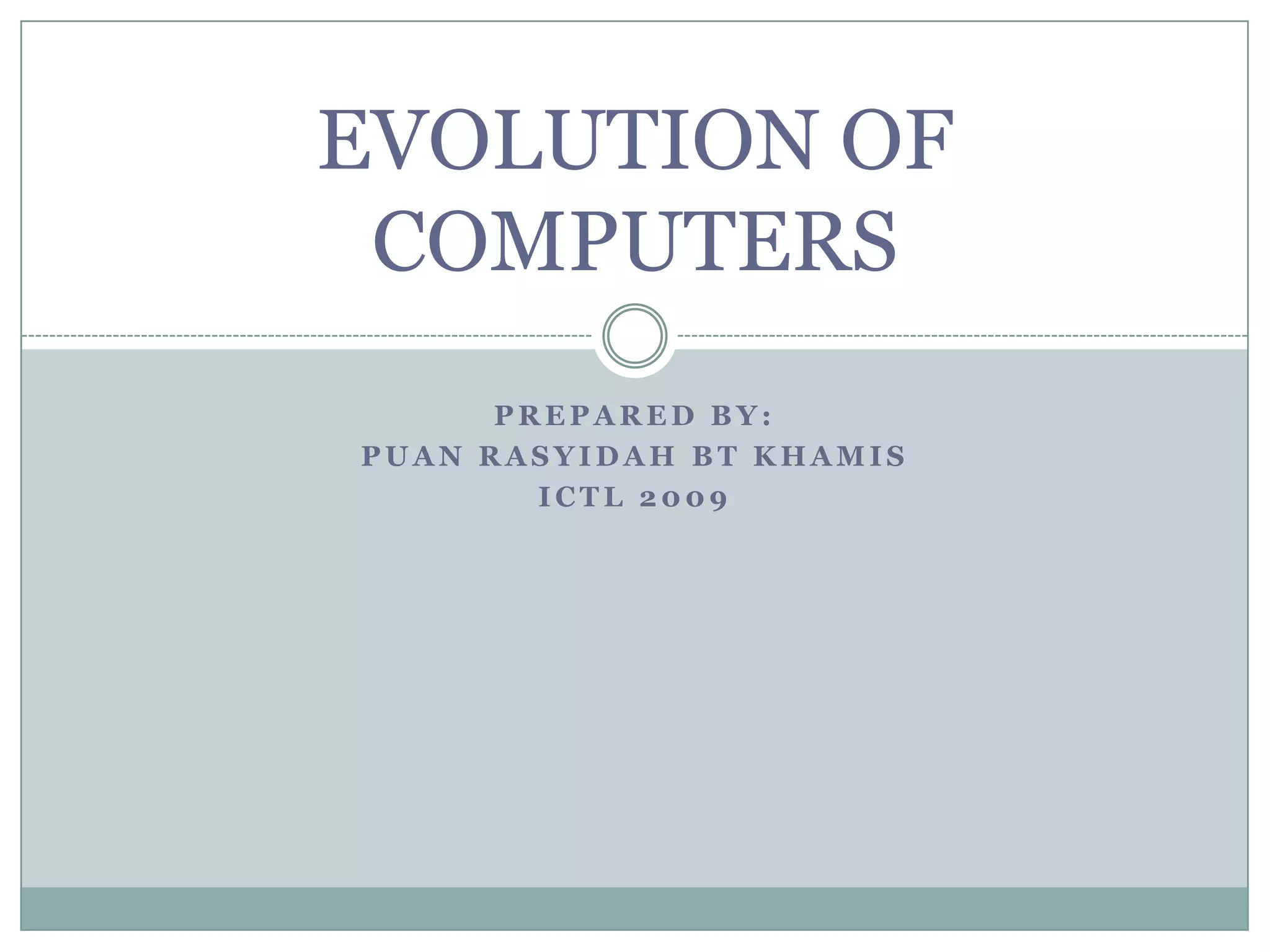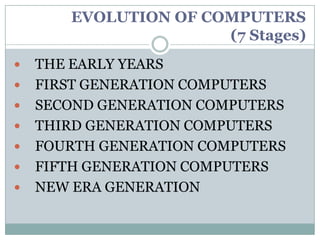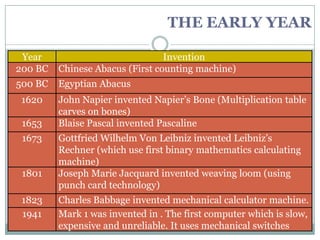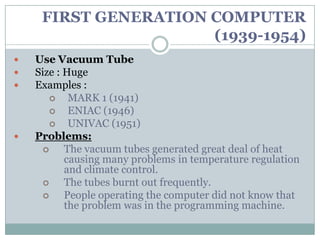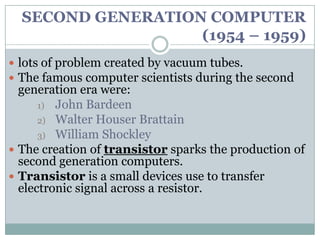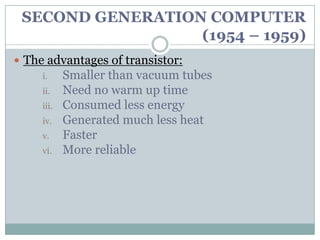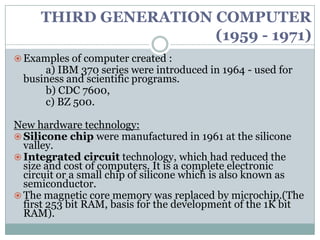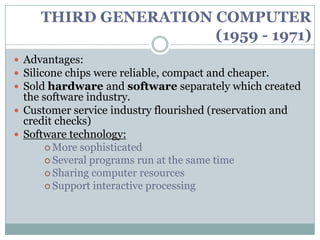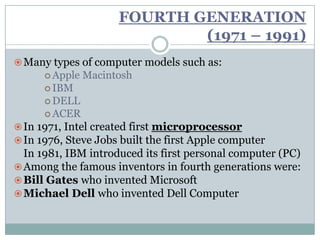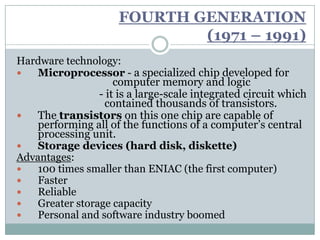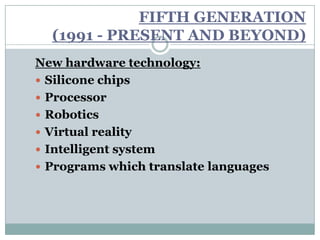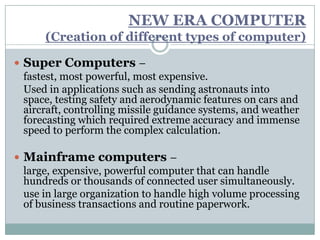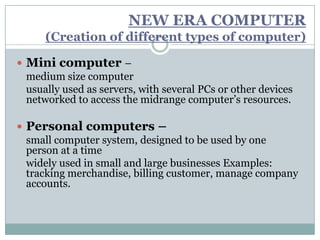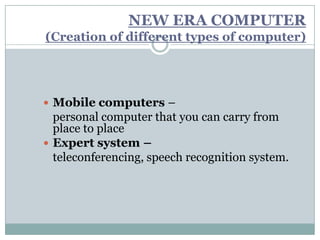The document summarizes the evolution of computers over 7 stages:
1) The early years saw the development of counting devices like the abacus leading up to early mechanical calculators.
2) First generation computers from 1939-1954 used vacuum tubes and were huge, slow, expensive, and unreliable.
3) Second generation computers from 1954-1959 replaced vacuum tubes with transistors, making computers smaller, faster, and more reliable.
4) Third generation computers from 1959-1971 saw the development of integrated circuits and silicon chips, making hardware smaller, cheaper, and able to run multiple programs simultaneously.
